Charlotte, North Carolina
A mural on Central Avenue in East Charlotte welcomes the city’s immigrant population.
Mural by Rosalia Torres-Weiner.
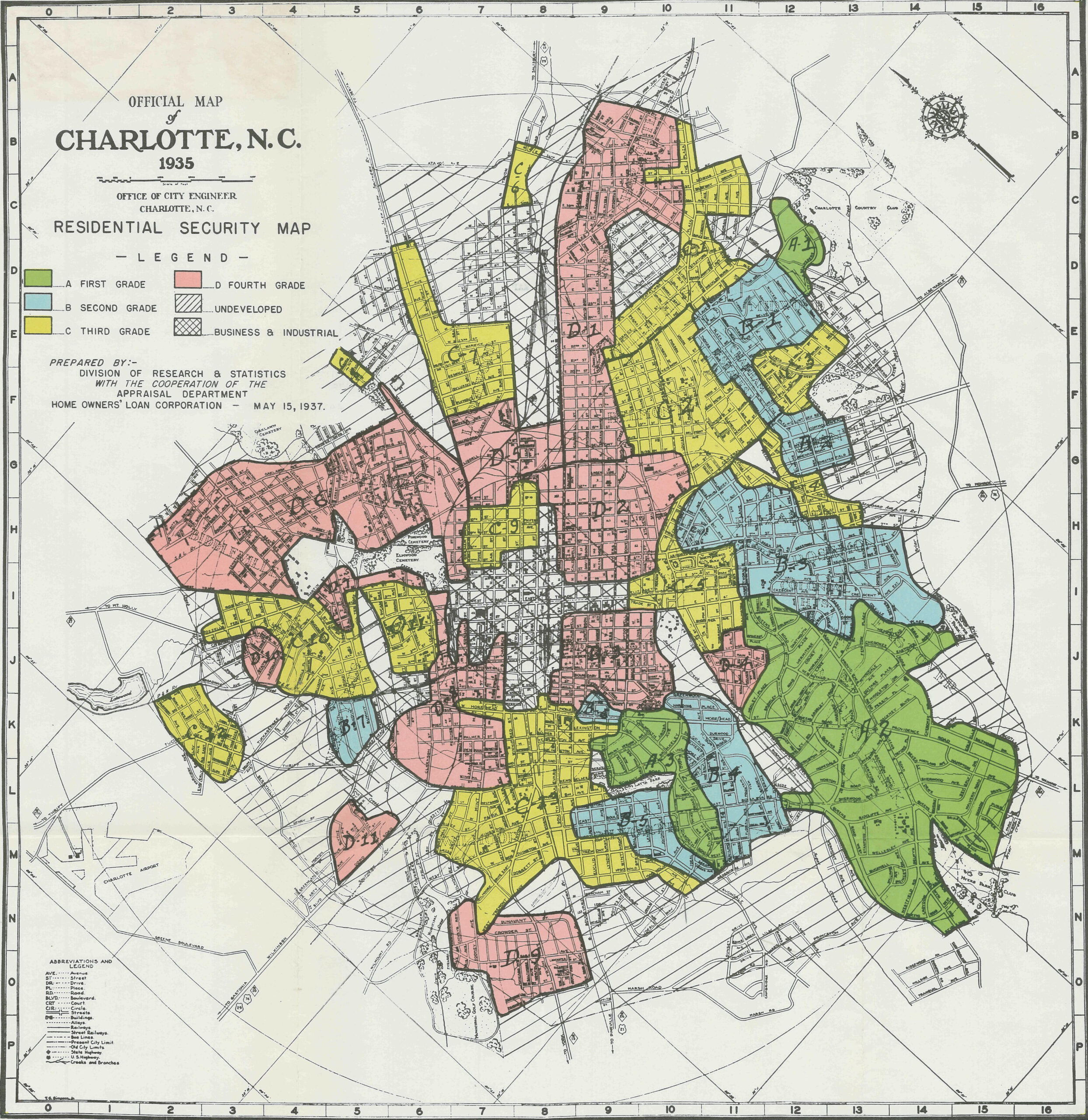
1935 map of Charlotte showing neighborhoods (in red) subjected to discriminatory lending practices.
Courtesy of Mapping Inequality Online Archive.
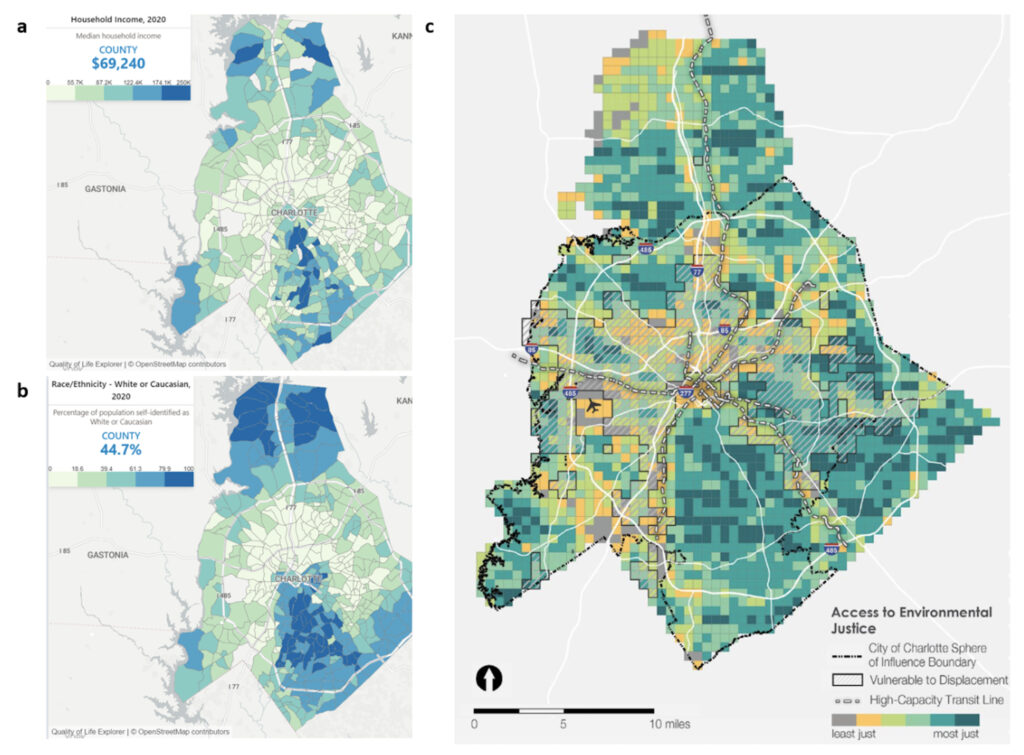
Crescent and Wedge inequalities today by (a) income, (b) race, (c) access to environmental justice.
Courtesy of the City of Charlotte.
Charlotte is a diverse, welcoming city. Yet it is known for its map of “crescent and wedge” race and income inequalities, ranking last in economic mobility out of 50 largest US cities. Climate change spurs increasing flooding and gentrification, worsening freedom of movement for people of color, immigrants, and youth.
Charlotte’s environmental injustices flow via water. Creeks were foundational to the city’s development. They enabled European settlement, gold mining, coal-powered industry, and polluting textile mills. Charlotte’s creeks are sites of environmental racism, flooding, and displacement–but also resilience.
Charlotte is a central hub in the environmental justice movement with teachers, students, and schools in the lead. Naming past harms as part of our city’s story is a first step towards repair. Community-led solutions, like climate curriculum in our schools, creek restoration, green spaces, and fair employment and housing, will ensure just futures for residents old and new.
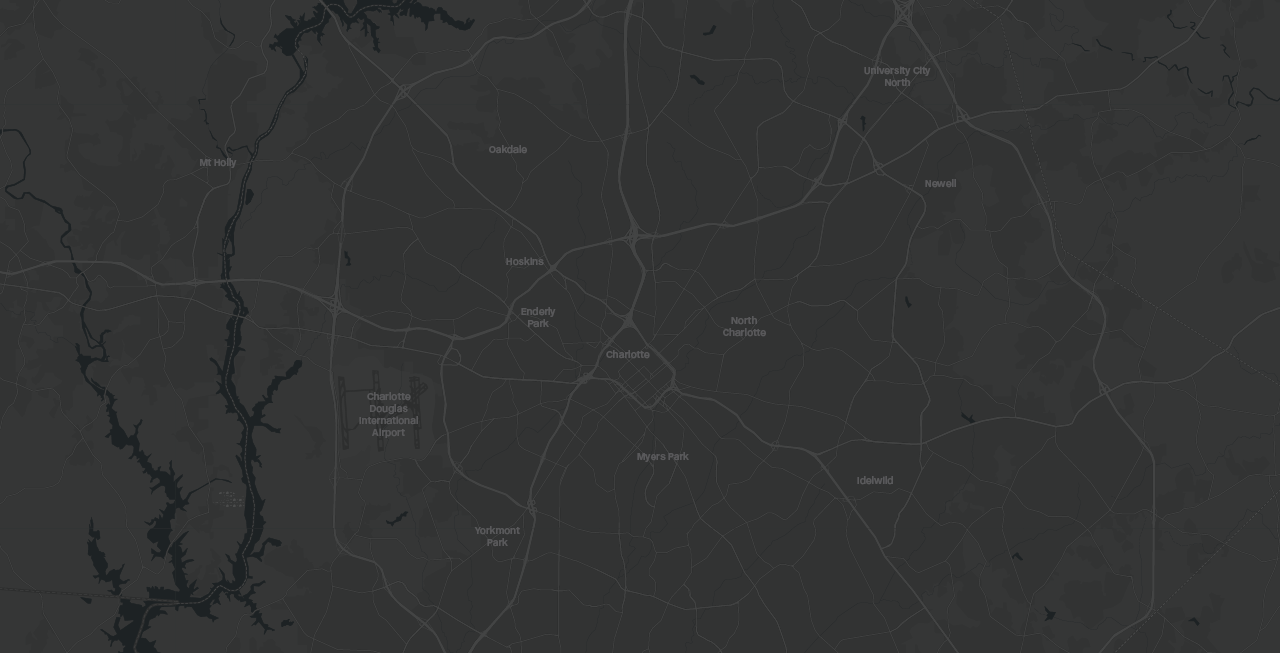
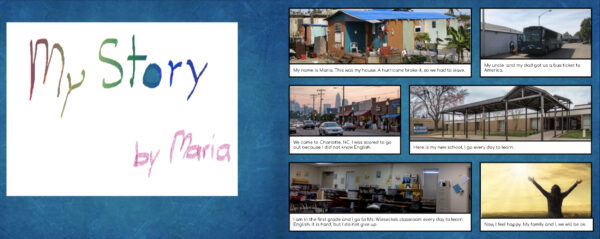
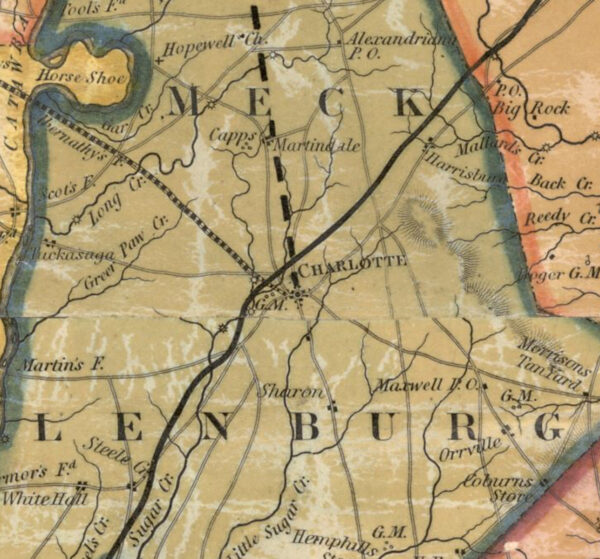
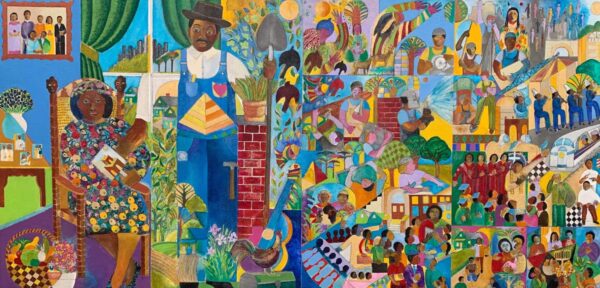
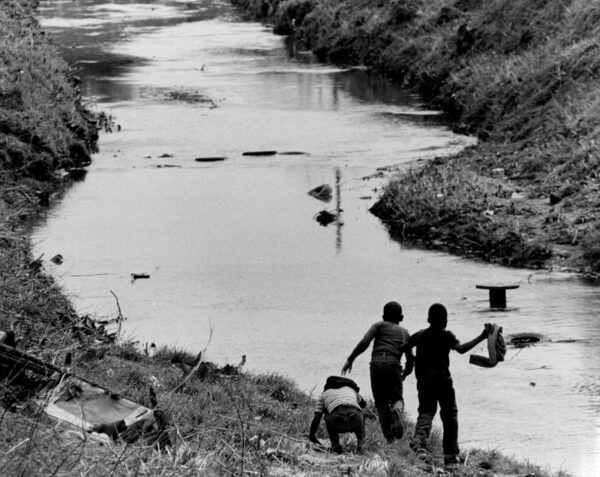

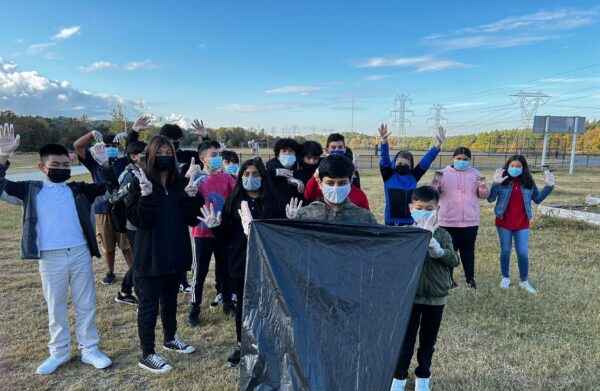
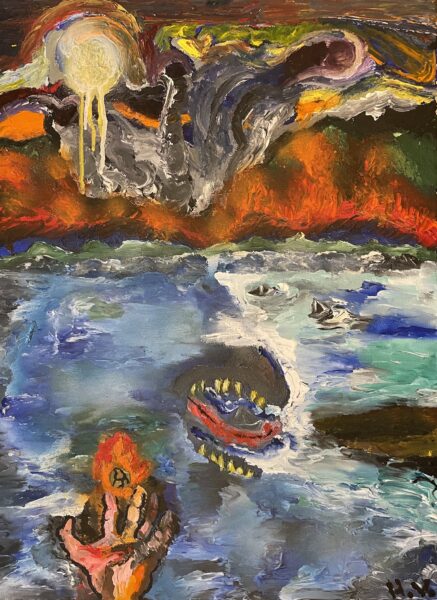
Who are Climate Refugees? Exploring climate change and migration in Charlotte.
Origins of Extraction: A history of mining and mills along Charlotte’s creeks.
Development and Displacement: How urban renewal programs destroyed a community.
Challenging Environmental Racism: Seeking refuge in West Charlotte.
Students Strike Back: Charlotte leaders of the environmental justice movement.
Building Resilience: Schools’ role in public memory and green renewal projects.
Just Futures: Teachers discuss curriculum for climate justice.
Our Point of View
As history students at UNC Charlotte, working on this project made us confront our various forms of privilege. We can now put words to experiences of environmental injustice that we didn’t know had a name, or a history. Working with the Charlotte Teachers Institute, we found that our city’s teachers, students, and schools are on the front lines of climate change and its intersecting crises. The act of choosing which stories to share wields power. The stories presented here are incomplete, yet interconnected. They honor the work that has come before us and are a springboard for discussion, study, and action.
—University of North Carolina at Charlotte
Charlotte Teachers Institute is an innovative partnership among Charlotte-Mecklenburg Schools, UNC Charlotte, and Johnson C. Smith University that supports community-and teacher-led professional development. CTI’s collaboration with this project began with a 2021 faculty-teacher seminar led by Tina Shull at UNC Charlotte. We discovered our own and our students’ stories of migration and environmental change. Here, we offer the concept of climate “refugee-ness” as a way to connect experiences across communities and across time.
—Charlotte Teachers Institute